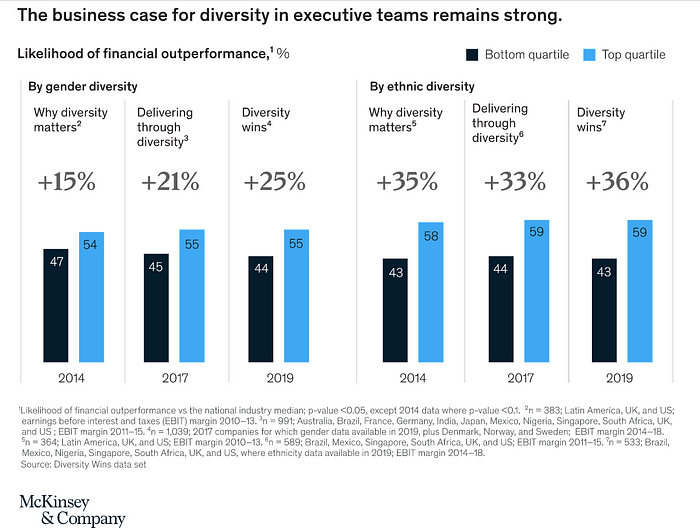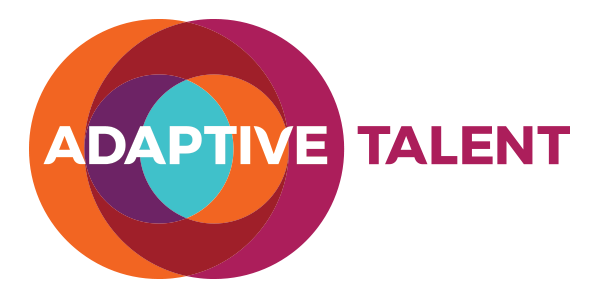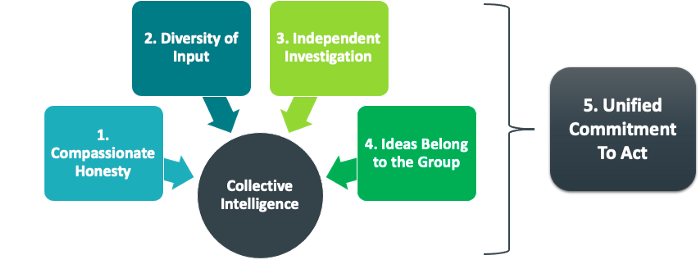Enlivening Edge is a website dedicated to the acceleration of organizations and social systems. It’s got a lot of great resources and is very progressive and hopeful about how we can lean into our ways of working together to bring about more humanity and success in a more interconnected and dynamic world. In other words, it’s a good place to aim and to then figure out where your organization is along the developmental path. In a recent post Natasha Miller Naderi provides some actionable tips on how groups can actually leverage diversity to improve their decision quality.
“It’s not enough to be diverse, obviously, and our human nature finds plenty of ways to limit high quality assessment and decision making. As I’ve said before, skills boot up on a person’s personal “operating system” or consciousness, and the same goes true for teams and organizations so it’s key to both develop the inner game of individuals (self-awareness, self-mastery/management, etc.) and the skills necessary to achieve the results that matter. These kinds of teaming skills are super critical to leveraging each person’s unique wisdom in service of higher quality analysis, experiments, faster learning, agility, and of course results. I’ve reposted the article below for convenience:
When a group of diverse and intelligent minds comes together, amazing things can happen. Conversations can be almost magical — leading to greater innovation, the discovery of products we never imagined, and solutions to complex problems that no one could solve alone. Team decision-making creates exponential learning, unified action, greater energy and momentum, and so much more.
However, the unfortunate reality is that teams frequently fail to live up to this ideal. Have you participated in a “team decision” where only one or two people did the thinking and the rest just went along for the ride? Or maybe you’ve been in a meeting where some seemed more concerned with getting credit for ideas, rather than finding the best solution?
An HBR article by Sunstein and Hastie[1] explains how social and reputational pressures frequently lead groups to make poor and damaging decisions. In fact, in many cases, often “[g]roups do not merely fail to correct the errors of their members; they amplify them.”
Giving decision-making authority to a team can be risky.
What collective capacities need to be present in order for a higher level of innovation and wisdom to emerge? And how do we develop those capacities?
Our experience and research developing teams suggests that there are five key team capacities that need to be present for this innovation and emergence to occur. They are: 1) Compassionate Honesty; 2) Diversity of Input; 3) Independent Investigation; 4) Ideas Belong to the Group; and 5) Unified Commitment to Act.
Let’s explore why each is important and how you can develop them.
Five Capacities for Collective Intelligence
1. COMPASSIONATE HONESTY
Collective intelligence requires a commitment to discovering ‘the best solution’ or ‘the truth’. Truth can only be discovered through honesty. In the absence of honesty, the best solutions and most creative ideas will remain hidden from us.
You might be wondering why “compassionate” honesty? When we hear a difficult yet honest message from someone who is uncaring and rude, it is easy to dismiss it. On the other hand, when the speaker is compassionate and caring, we are much more likely to hear what they have to say, explore that different perspective, and seek to understand even the most challenging suggestion.
2. DIVERSITY OF INPUT
Research consistently shows that diverse groups of problem solvers consistently outperform homogenous groups — even when those homogeneous groups are made up of the best and brightest individuals.
“As individuals we can accomplish only so much. We’re limited in our abilities. Our heads contain only so many neurons and axons. Collectively, we face no such constraint. We possess incredible capacity to think differently. These differences can provide the seeds of innovation, progress and understanding.” [2]
Further strengthening the case for diverse teams, a 2019 McKinsey study found that that companies in the top quartile for gender diversity on executive teams were 25 percent more likely to have above-average profitability than companies in the fourth quartile. And in the case of ethnic and cultural diversity, the top-quartile companies outperformed those in the fourth, by 36 percent.[3]

3. INDEPENDENT INVESTIGATION
Surprisingly, experiment after experiment, shows that humans tend to conform to the group, MORE than we tend to stand up for what we think individually. This phenomenon, known as “groupthink” has been noted as the cause of many decision-making disasters in the world, such as the Space Shuttle Challenger Disaster.[4]
At times, we might conform to the group due to fear of being different. At other times, it may be that we simply have not taken the time, done the research, nor given the topic enough thought to come up with our own independent view. It is often just easier to go along with whatever others think is best.
Collective intelligence only arises when we first individually investigate the situation with our own set of data and from the lens of our own unique experience and understanding, and then come together to aggregate our collective view. This was one of the key findings in the book Wisdom of Crowds by James Surowiecki.
“See with thine own eyes and not through the eyes of others.”[5]
4. IDEAS BELONG TO THE GROUP
When our ego is attached to our ideas, we work hard to defend those ideas — even when they are wrong. When, on the other hand, we contribute those ideas to the group, it is much easier challenge them, test them, and mold them into something much better than the original.
Just as fire is used to test and refine gold, similarly, testing and challenging ideas, purifies and perfects them.
Furthermore, if we believe in a “field of consciousness”, then giving ideas to the group makes perfect sense. This concept maintains that there is field, which is a source of inspiration and creativity, and it is equally available to all. Through developing our personal consciousness, we can more readily access this field. If ideas come from a field of consciousness, then they do not belong to us, as individuals. We are merely vessels, though which these ideas travel.
5. UNIFIED COMMITMENT TO ACT
Action is the most important phase of decision-making. When we act with unified conviction, we generate a powerful force that supports our collective success. Furthermore, unified action enables us to clearly see the results of our decision, so that even when the idea is imperfect, we can continuously improve our decisions and actions.
Sharing dissenting views after a decision is made, undermines the decision, weakens the team as whole, and sets up the team for failure. Decision-making is meaningless if we fail in executing those decisions.
After there has been honest consideration of all the diverse views, we sacrifice our personal preference for the sake of the group and move into action with unity and strength.
Develop Your Team’s Collective Intelligence
What signs can you look for, to see if your team possesses these capacities? How do you know when more practice is needed?
Below is a team inventory you can use to gauge how your team is doing. Simply ask your team members to rate how they are doing on each one, from a scale of 1–10, where 1= Poor and 10 = Fantastic. After everyone has individually rated, have a discussion on how you are doing and what you can practice more, to increase your collective intelligence.

Are you curious about how you can develop your team’s collective intelligence? Feel free to reach out for a pdf of this inventory and/or to explore more together.”
[1] Published in: https://hbr.org/2014/12/making-dumb-groups-smarter
[2] Scott Page, The Difference, Princeton University Press
[3]From: https://www.mckinsey.com/featured-insights/diversity-and-inclusion/diversity-wins-how-inclusion-matters?cid=other-eml-alt-mip-mck&hlkid=804779c5faad46ada9ad3b04f861739c&hctky=1283940&hdpid=12e9fae7-56aa-4c56-901d-bc031af20ea3
[4] https://en.wikipedia.org/wiki/Groupthink#Space_Shuttle_Challenger_Disaster
[5] Quote by Baha’u’llah, founder of the Baha’i Faith.
Natasha Naderi: I write about the evolution of humans and organizations into collaborative, adaptable, and purposeful ways of being.
---
Adaptive Talent is a talent consultancy designed to help organizations achieve amazing results and ongoing adaptability. Founded in 2008 and based in Vancouver, Canada we offer retained and contingent search, assessments, training, leadership coaching (1:1 and group), leadership development programs, and culture & organizational development consulting.

